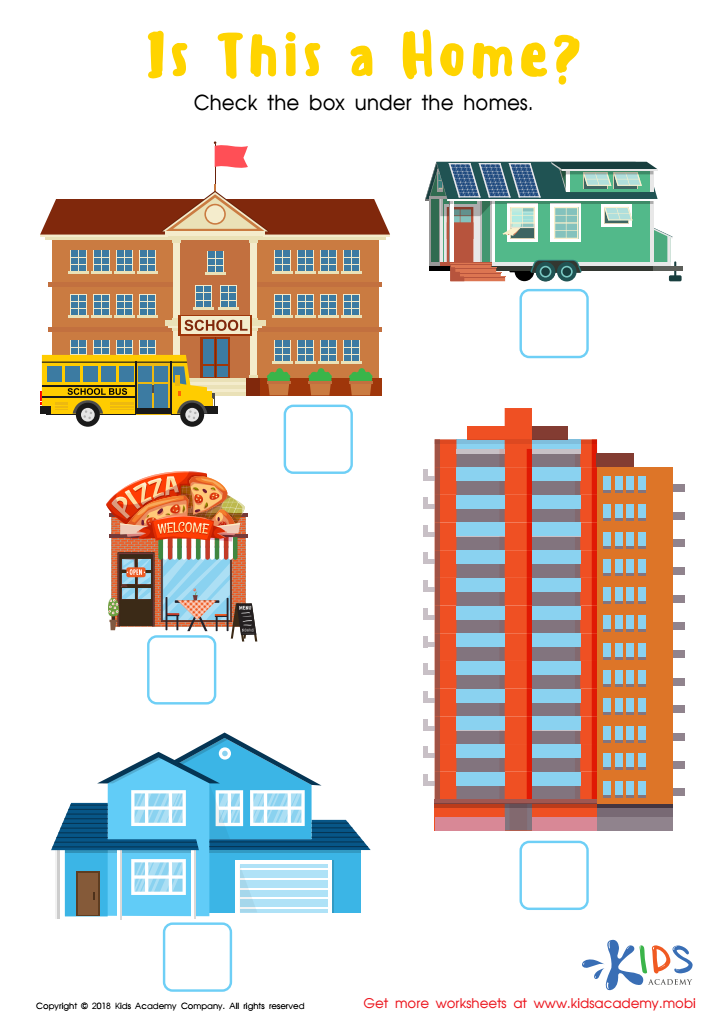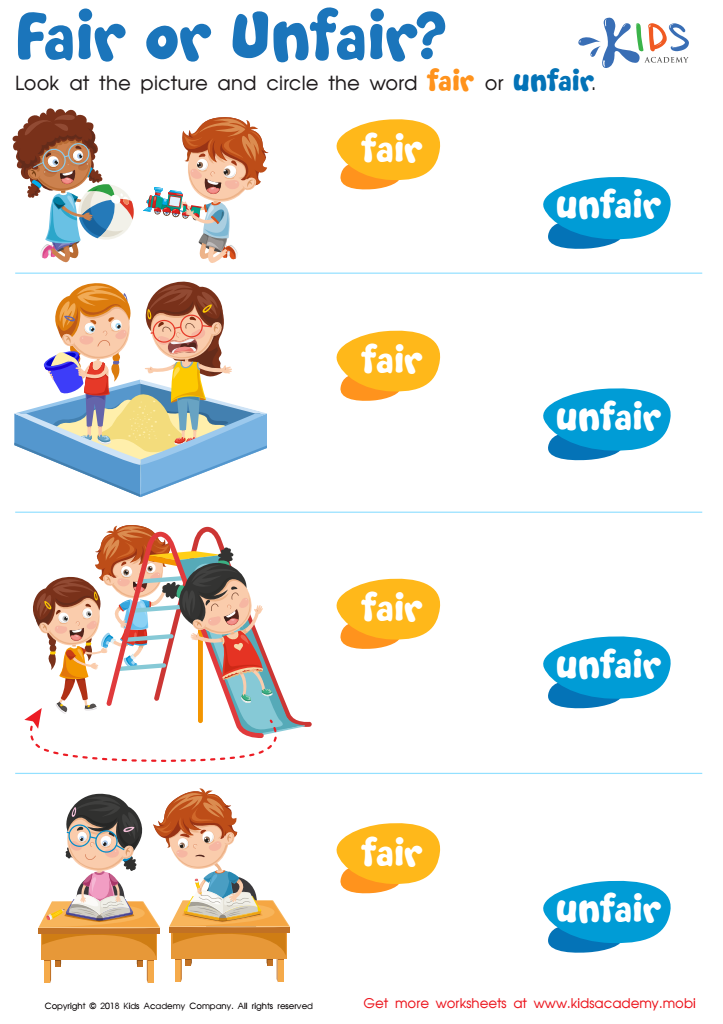Decision making skills Social Studies Worksheets for Ages 3-8
3 filtered results
-
From - To
Empower your child's critical thinking with our Decision Making Skills Social Studies Worksheets, tailored for ages 3-8. These engaging activities are designed to help young learners make thoughtful choices, understand consequences, and develop problem-solving strategies. Through relatable scenarios and interactive worksheets, kids will practice evaluating options, considering different perspectives, and making informed decisions. Ideal for early-grade social studies, these resources enhance cognitive skills and foster confidence in young learners. Perfect for both classroom and home use, our worksheets ensure that children build a strong foundation in decision-making, preparing them for future challenges.


Is this a Home? Worksheet


Fair or Unfair Worksheet


Towns Worksheet
Decision-making skills form a crucial aspect of developing well-rounded, capable children, and integrating these skills within Social Studies for ages 3-8 can offer significant benefits. At this early developmental stage, children are highly impressionable and actively shaping their perspectives and understanding of the world. Introducing decision-making through Social Studies helps young learners grasp the consequences of their choices, understand different viewpoints, and recognize the importance of considering various factors before making decisions.
Parents and teachers should prioritize this because it encourages critical thinking and problem-solving abilities, which are essential life skills. Learning these skills early prepares children to navigate complex situations both in and out of the classroom. It also cultivates a sense of responsibility and independence, empowering children to become proactive rather than reactive.
Furthermore, decision-making skills taught in a social context help foster empathy, cooperation, and interpersonal skills. For example, classroom activities such as group projects or role-playing scenarios from history or civic life enable children to practice making fair and informed decisions, thereby understanding the importance of inclusivity and justice. Consequently, integrating decision-making in Social Studies enriches young learners' educational experiences and equips them with the tools they need for personal and social success.
 Assign to My Students
Assign to My Students





















